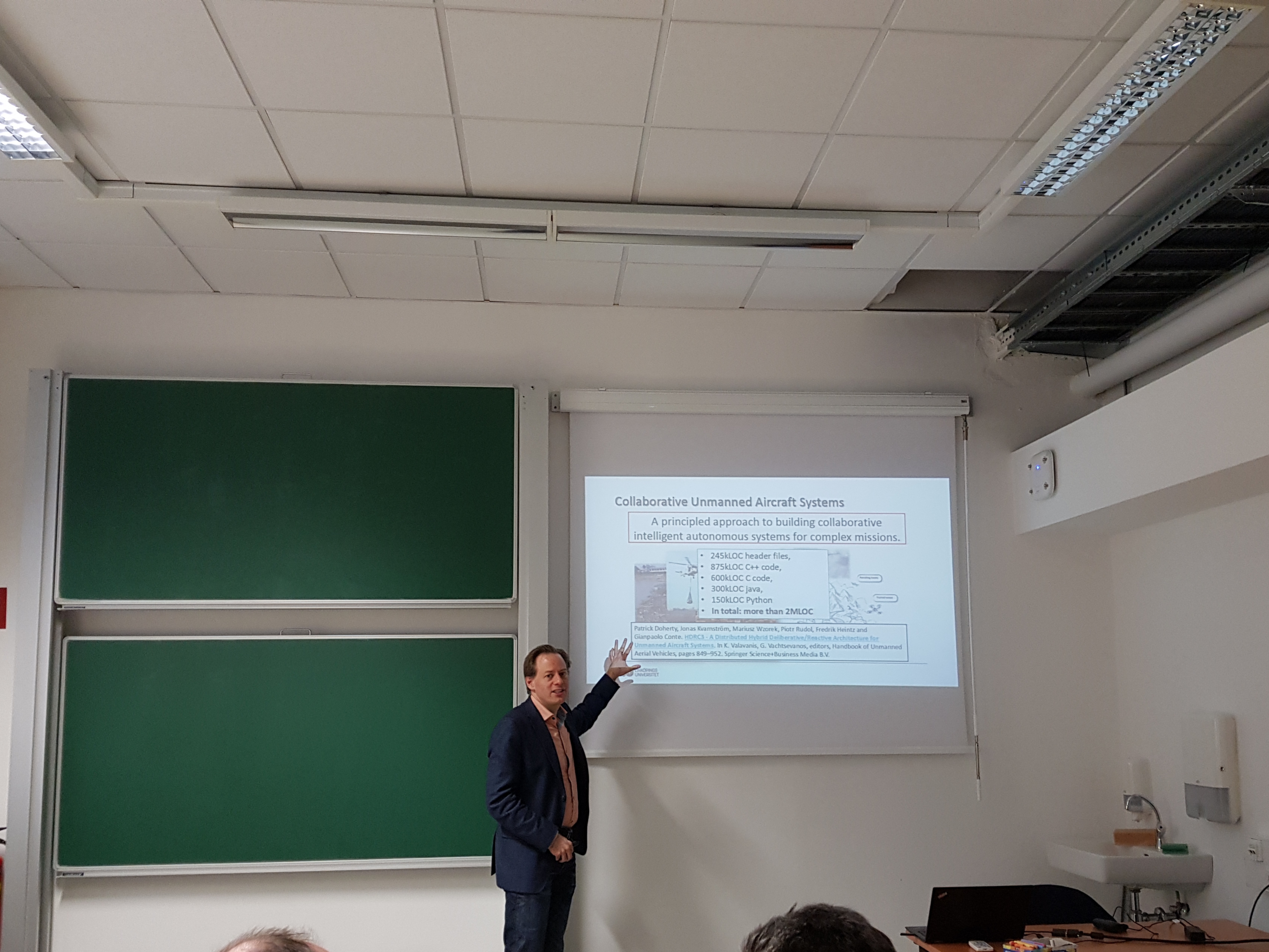Fredrik Heintz
Reasoning and Learning over Streams for Safe Autonomous Systems
VCLA and WPI hosted a talk by Fredrik Heintz
| DATE: | Friday, November 23, 2018 |
| TIME: | 13:30 s.t. |
| VENUE: | Seminar Room Gödel, Favoritenstrasse 9-11, Ground Floor, (HB EG 10) |
ABSTRACT
We live in a streaming world. Streams of new information is continually being produced by sensors and humans. Streaming information is always dynamic and temporal, and usually also spatial in nature. Reasoning over these streams is necessary to draw conclusions and make decisions in real-time. Since streams are conceptually infinite, this reasoning has to be done incrementally as new information becomes available. The incremental reasoning over streams is called stream reasoning. Stream reasoning addresses at least three of four V's in BigData: Velocity, Variety and Veracity.
This talk presents our work on efficient and scalable logic-based approaches to spatio-temporal stream reasoning with incomplete information suitable for run-time verification of autonomous systems.
- Integrating temporal and spatial deductive stream reasoning through the combination of Metric Temporal Logic (MTL) and Region Connection Calculus (RCC8) [ECAI2014, AAAI2016].
- Handling incomplete information in a principled way [KR2017, AAAI2019].
The talks also outlines current research on integrating learning into the stream reasoning framework to monitor not only the current execution but also the predicted future execution of the system.
- Integrating probabilistic and logical deductive stream reasoning through extending Metric Temporal Logic (MTL) with probabilistic interpretations [TIME2016].
- Integrating discrete and continuous inductive stream reasoning through the learning of graphs of Gaussian Processes capturing the movements of vehicles or other activities [IV2018].
Dr. Fredrik Heintz is an Associate Professor of Computer Science at Linköping University, Sweden. His research focus is artificial intelligence especially autonomous systems, stream reasoning and the intersection between knowledge representation and machine learning. He is the Director of the Graduate School for the Wallenberg AI, Autonomous Systems and Software Program (WASP), the President of the Swedish AI Society and a member of the European Commission High-Level Expert Group on AI. He is also very active in education activities both at the university level and in promoting computer science and computational thinking in primary and secondary education.
CONTACT
Thomas Eiter

